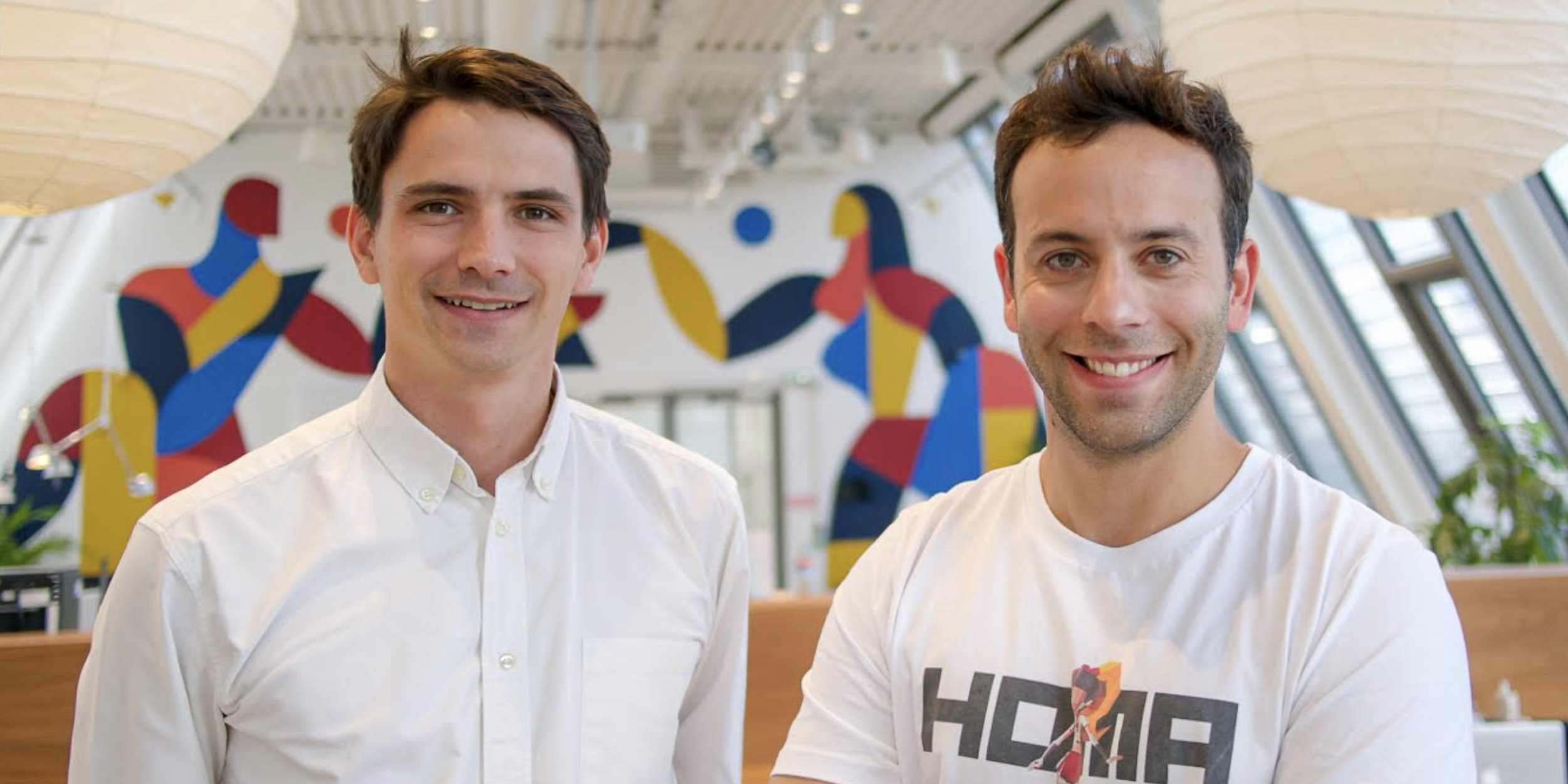It’s fitting that interviewing Prezi cofounder and chief executive Peter Arvai over video chat involves a heavy dose of visual graphics, with data flashing up on the screen around his head.
From a three-man startup founded in Budapest, Arvai has, over the past decade, built Prezi into a global powerhouse in the field of visual communications, with over 100m users worldwide — think PowerPoint for a more visually demanding audience.
Last Wednesday Prezi unveiled what it claims is the first-ever video platform that puts people and graphics on screen together in real time.
“In the past what has happened is if you do a presentation it takes over all of your screen, so the actual person goes away, and that’s the time when most people check out,” says Arvai.
“The great thing here is that this doesn't require a studio setup,” he adds. “You also don't need to know anything about advanced editing tools.”
Getting big
Prezi was founded in 2009, at the start of the financial crisis — hardly auspicious timing. “Starting from Hungary in the midst of a recession and taking on the world's largest giants, that wasn’t something that people immediately wanted to invest in,” says Arvai, who went without a salary for the first year and a half.
However, users quickly embraced Prezi, and investors followed. In 2009, Prezi became the first company to receive money from TED Conferences, after its founders secured an 18-minute meeting with TED curator Chris Anderson (the maximum length of a TEDtalk). TED Conferences invested $1.5m along with Copenhagen’s Sunstone Capital.
The company has now raised $72m over three rounds and has 330 employees and offices in Budapest, Riga and San Francisco.
Unlike PowerPoint’s linear series of slides, Prezi’s software is designed to create free-flowing presentations that zoom in and out on graphics, text and video.
In 2017 Prezi also acquired Latvian-based Infogram, a web-based data visualisation company that specialised in charts and infographics.
This fit with Prezi’s other stated aim; empowering those who do public speaking to express themselves in a more natural and engaging way, and to ditch the static, slide-based approach.
To this end, the company has created the world’s largest database of visual presentations, over 360m, which have been viewed more than four billion times.
“We actually know that if you move away from slides, PowerPoint slides, you can gain 25% effectiveness,” says Arvai, pointing to Harvard University double-blind research. “I can geek out a lot on this topic,” he adds.
Breaking barriers
Arvai, who was born and raised in Sweden by two Hungarian parents, is an openly gay entrepreneur, unusual in socially conservative Hungary, where the company still has its largest base of operations.
He is also, perhaps as a result, a strong advocate for greater inclusivity in tech, and believes that business leaders need to be willing to show more vulnerability. He says that bosses sharing their own personal experiences helps to create a safe environment for employees to feel able to do the same.
“The number one thing is that it allows other people to be vulnerable as well,” he says. “And from a business point of view, we know that it's not just the morally right thing to do, to be inclusive, we know it also affects the bottom line in a positive way.”
“I think that in the US right now, this topic is really at the foreground, particularly in the Bay Area,” he adds. “People are very aware of the challenge. My experience in Europe is that it’s really a broad spectrum from country to country.”
On the issue of inclusivity, Arvai says that the tech sector in general needs to do more to increase diversity.
“I think there's a parallel between many other tech-forward industries. For example, when the aviation industry came along it was usually male pilots,” he says. “It was really hard to change that notion. I think there is a similar thing happening in tech.”
“Our industry does have a challenge, as do most industries, but we probably have even more of it than some others,” he adds.
Arvai has been open about his sexuality at work from the start. “When I thought about building Prezi together with my co-founders it was a part of our conversation. I couldn't imagine working 24-hour days, because that's what it's like starting a company, and having to hide a certain part of my life,” he says.
After Prezi took off and became a prominent startup, Arvai was asked about his private life by the Hungarian media. He decided to be open about it and later, in 2013, co-founded NGO WeAreOpen along with Google and another company, to engage with local companies and stand up for greater tolerance and inclusion.
“In Hungary now there's over 1000 companies represented in this NGO, over 75,000 employees altogether, and we're sharing best practices,” he says. “There's a lot of practical things around how to do this.”
There are, he says, also practical benefits to having a diverse team – whether that’s gender, background, sexuality or something else entirely.
“Diverse teams come up with better ideas,” says Arvai. “They don't get stuck in single trains of thought, and you tend to have better conversations and then ultimately better decisions.” Prezi has close to 30 nationalities represented in its 200-person Budapest office.
Diversity is also particularly useful in companies with a global reach, he adds. “In the case of Prezi, where we have users all over the world, this leads to us needing to be able to empathise and connect to all of these people internally. To understand them and understand how we can improve.”
That’s part of his message to the tech industry as a whole. “There's a lot of people who are in this industry because they're idealist and they're passionate about what technology can do for society,” he says. “So there's always going to be a mix and right now we're sort of in the gold rush period again, and there's a big emphasis on money.”
“That’s not necessarily bad,” he adds. “But if it's not complemented with a more holistic approach then I do think that can be bad for society in general, but also for the companies as they grow."
“The most important thing we can do is to be open ourselves and let people feel welcome,” he says. “One of the things that I think can be a challenge if you're not mindful about these things is that people self-select out.”


